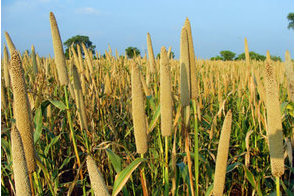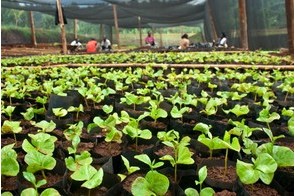Unlocking Africa’s agricultural exports

Summary
Agro-allied industries dealing in the export of agricultural products must ensure that such products comply with the regulatory demands of destination countries.
Africa’s export of agricultural products is increasing but the continent is still struggling with trade deficit, as importation of food products continues to exceed export. The rise in export from African countries, according to the International Food Policy Research Institute (IFPRI), was from processed food products and horticultural products. An increase of up to 35 per cent in the share of processed food products from Africa was recorded between 1988 and 2014, while horticultural products accounted for 22 per cent of the continent’s agricultural exports in the same period.
In a more recent report released in 2020 by the Africa Agriculture Trade Monitor (AATM), Africa’s share of world agricultural trade increased from 10 per cent in 2005 to 12 per cent in 2017. Compared to other regions of the world with similar level of development, Africa has a relatively low share of global agricultural export, which had an average value of 4.2 per cent between 2003 and 2018. In the same period, Asia-Pacific developing region had 16.9 per cent export share while Latin America and the Caribbean (LAC) had 15.6 per cent export share.
Although the agriculture sector is responsible for 59 per cent of Africa’s total employment, unlike Asia-Pacific and LAC where agriculture accounts for 36 and 17 per cent of employment, respectively, agricultural productivity in Africa does not exceed 50 per cent of Asia’s productivity or 20 per cent of agricultural productivity in LAC. This outcome is the effect of the stagnation in Africa’s productivity between 2000 and 2018.
Over the years, the continent’s comparative advantage has been in the export of cash crops such as cocoa, tea, coffee, cotton, cashew nut and sugar. More recently, however, citrus (oranges – dried and fresh), fresh grapes, legumes and pulses, sesame seeds, and tomatoes have been found to perform excellently as export products. Meanwhile, cashew nuts (in shell), cocoa beans (not defatted), cocoa butter (fat and oil), cocoa paste, cotton (not carded or combed), tobacco (stemmed or stripped) and black tea (partly fermented) have maintained a steady advantage as choice products for export in global trade.
The main destinations for these products include Europe, which accounted for 36 per cent of Africa’s export between 2016 and 2018, declining from 45 per cent in 2005- 2007. Brazil, Russia, India and China – the BRIC countries – jointly take up 14 per cent of Africa’s agricultural products export between 2016 and 2018, rising from 10 per cent in 2005 – 2007. The United States accounted for about 5 per cent of exports from Africa without any significant change over the years. Intra-African trade in agricultural commodities and products accounted for 20 per cent, while the exports to other emerging economies and fast-growing regions accounted for 25 per cent share, with a 5 per cent increase from 2005 – 2007.
Nigerian Export-Import Bank
Africa is slightly performing better in agricultural production than export. Several factors are responsible, including increasing local demand for agricultural products as a result of population growth, high tariffs, and regulatory requirements for agricultural products in various destinations. Expanding the export of value-added agricultural products from African countries to the developed or high-income nations across the globe is pertinent for economic growth, development, and prosperity on the continent. It is also important for increasing foreign exchange earnings by African countries.
Nigeria, for example, earned N0.53 trillion from agricultural exports between 2016 and 2018, trading cashew nuts, ginger, sesame seeds, fermented cocoa beans, crude palm kernel, soya beans, prawns and frozen shrimps, among others. The country, however, had a total agriculture import of N2.39 trillion in the same period, which amounted to a trade deficit of N1.86 trillion, according to a report by PwC. Nigeria’s agriculture sector contributed 21.2 per cent to aggregate Gross Domestic Product (GDP) in 2018, according to National Bureau of Statistics. Strengthening export of agricultural products can significantly increase the contribution of the agriculture sector to the country’s GDP that would expand further. The same effect would apply to other countries on the continent if their export of agricultural products increases.
When African countries invest more in the production and processing of crops with comparative advantage for export, yielding high level of output, the flow of foreign exchange into the continent will drastically increase. Africa can turn its external trade deficit to trade surplus by improving the exportation of value-added agricultural products. This will also counter the acute imported food inflation being experienced by African countries including Nigeria, persistently running high trade deficit in food products. Another advantage of boosting agricultural export, in particular by shifting from exportation of agricultural produce to processed or manufactured products, is job creation. Increasing the productivity of Africa’s agriculture and value-added export will help in reducing unemployment. More jobs would be created locally, as more farms, processing facilities and industries emerge.
It is very important for governments to ensure that as export increases, domestic demands for agricultural products are also met to avoid domestic food inflation and even hunger. Internal food security should not be under-emphasized. Producing enough food and other agro-products to feed and support a country’s population, using internal resources, must attract due policy attention. Higher employment opportunities stemming from increased production for both export and local consumption will translate into more income for individuals, households and the continent at large. Poverty and hunger will also reduce.
For farmers and agro-allied companies in African countries to take more advantage of opportunities in the rapidly growing markets for agricultural products around the globe, policymakers in the agriculture sector must focus on creating enabling environment to stimulate export. Smallholder farmers and entrepreneurs must be supported to tap into the numerous benefits of producing products of comparative advantage for foreign markets.
One major limiting factor for the exportation of agricultural products from Africa to the Western markets is non-compliance with international standards. Others are tariff structure and tariff escalation for imported products. Many countries also use subsidies and other protectionist tools to limit access to their domestic food markets. This makes agriculture less internationally competitive, ostensibly to achieve domestic food security.
Beyond the tariff barriers, African countries need to attain international standards to be able to take advantage of export opportunities that are available. The standards and certifications often required include Food Safety Management System (ISO 22000), Food Safety System Certification (FSSC 22000), Hazard Analysis and Critical Control Point (HACCP), British Retail Consortium (BRC), Good Manufacturing Practices (GMP), Good Agricultural Practices (GAP), depending on the prospective destination export markets.
Essentially, agro-allied industries dealing in the export of agricultural products must ensure that such products comply with the regulatory demands of destination countries. Relevant government agencies in Africa can conduct robust product- and destination-specific trainings for producers and people interested in exports, on standards and other requirements, and assist them to meet up where help is needed. In addition to training services, governments can also support export by allocating budget for research activities at agricultural institutions to develop new products that would perform well in foreign markets and to increase the yield of the products currently available for export.
Ensuring adequate use of land resources cannot be over-emphasized. In countries with high production and exportation of agricultural products like the United States, Netherlands, Germany, Brazil and France, very little arable land is allowed to go unutilized. African countries must make sufficient use of their arable land. Unfortunately, several hectares of arable land remain uncultivated and unproductive in many countries across Africa. The continent holds more than 60 percent of the world’s uncultivated land. This is a huge setback for a continent looking to achieve food security and eliminate poverty.
Improving infrastructural services to promote export will also make significant impact. Good road networks in both urban and rural areas and widespread irrigation to limit dependence on rainfall will be of significant help. Moving from extensive use of fertilizer and herbicides to the widespread use of genetically modified seeds will reduce the cost of purchasing these chemicals and at the same time ensure improved crop yield to make more crops available for export after internal consumption.
In summary, there is a need to diversify Africa’s agricultural export production base from primary products to value-added ones. Diversification of agricultural production for export is a promising tool for sustainable development of the agriculture sector. Developing products with higher added value is imperative for increased revenue generation.
Increase in export can also be achieved by expanding the sheer tonnage of export products. As much as possible, African governments should encourage the creation of more agro-food exporting companies and support them to compete favourably in foreign markets.
Mojisola Karigidi, a Financial Nigeria Columnist, is a Nigerian biochemist and the founder and product developer at Moepelorse Bio Resources. She is also a Global Innovation Through Science and Technology (GIST) awardee, and an Aspen New Voices fellow.
Related
-
Finger millet genome breakthrough to help safeguard food security
Finger millet, a crucial crop for ensuring food security, is cultivated extensively in Eastern Africa, India, and ... -
How to create wealth through agriculture in Africa
While both the employed and the unemployed across Africa have been encouraged to engage in agriculture, the focus has been ...
-
Uganda's Grainpulse receives $11 million from IFC to support farmers
The investment will enable Grainpulse to support its expansion and increase food production in Uganda.








